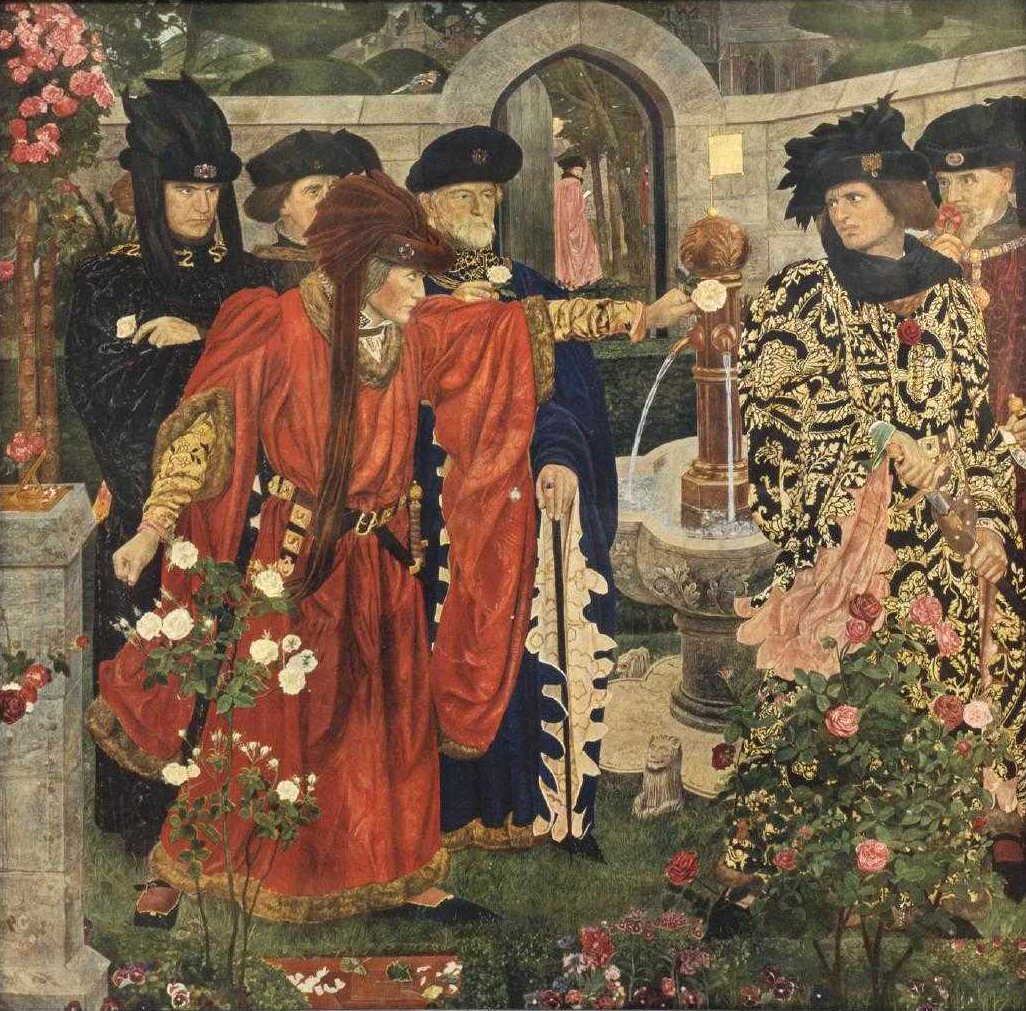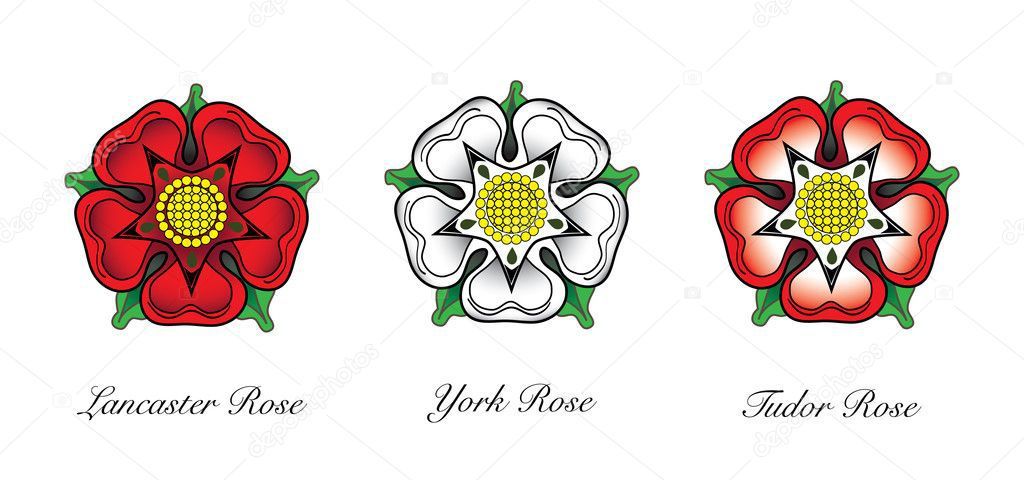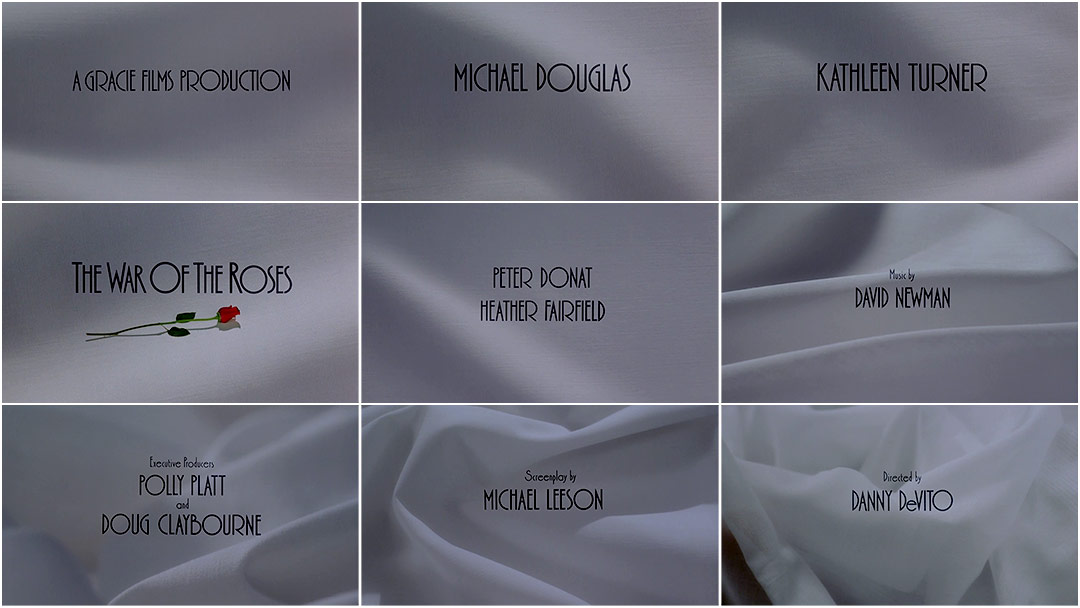THE WAR OF THE ROSES
A DANNY DE VITO MOVIE
The Opening by Elaine and Saul Bass
The War of the Roses is Danny DeVito’s second excursion into feature film direction, having received accolades for his slapstick comedy Throw Momma from the Train two years earlier. It concerns the courtship, marriage, and, mostly, the comical bitter divorce of Oliver and Barbara Rose, played by Michael Douglas and Kathleen Turner, as recounted by their chain-smoking attorney Gavin D’Amato, played by DeVito himself.
The ingredients in the Roses opening title sequence are basic: a static, nouveau sans-serif typeface is superimposed over a neutral gray background, soon revealed to be a swath of white fabric — presumably a bed sheet or a wedding gown detail, given the film’s premise.
Over the course of the sequence, the fabric gains depth and relief, presented at first by subtle gradients and delicate shafts of light, then becoming a contoured landscape of rolling hills. The folds become more pronounced and dramatic over time and by the end, we find ourselves face-down in a crumpled mess of fabric. The sequence is capped by D’Amato removing the fabric from his coat pocket and blowing his nose into it.
As with many of Saul and Elaine Bass’s previous title sequence designs, the opening to Roses can be read as a microcosm of the film itself, albeit entirely allegorical. Oliver Rose’s dull existence is given new meaning and definition when he meets Barbara, but their honeymoon is short-lived, and soon the pretense of marriage becomes a catalyst for destruction instead of salvation. This narrative is played out in its entirety during the opening sequence, right under the noses of an unsuspecting audience.
The titles to The War of the Roses are not the most memorable in the Basses’ portfolio. Their signature op-art approach in the ’50s and ’60s had fallen out of vogue, and they had long since migrated over to commercial design.
Along with Penny Marshall’s film Big in 1988, Roses represented a return to titling for the Basses, having won the favor of a new generation of directors who had grown up on their work. And with that revival came a paradigm shift in their approach to the craft: sharp lines gave way to smooth surfaces and graphic representation was replaced by photographic imagery. And while it would take some time for the Basses to regain their footing with this new vernacular, their trademark less-is-more, concept-over-content approach to title design remained intact.
The Plot of the Movie
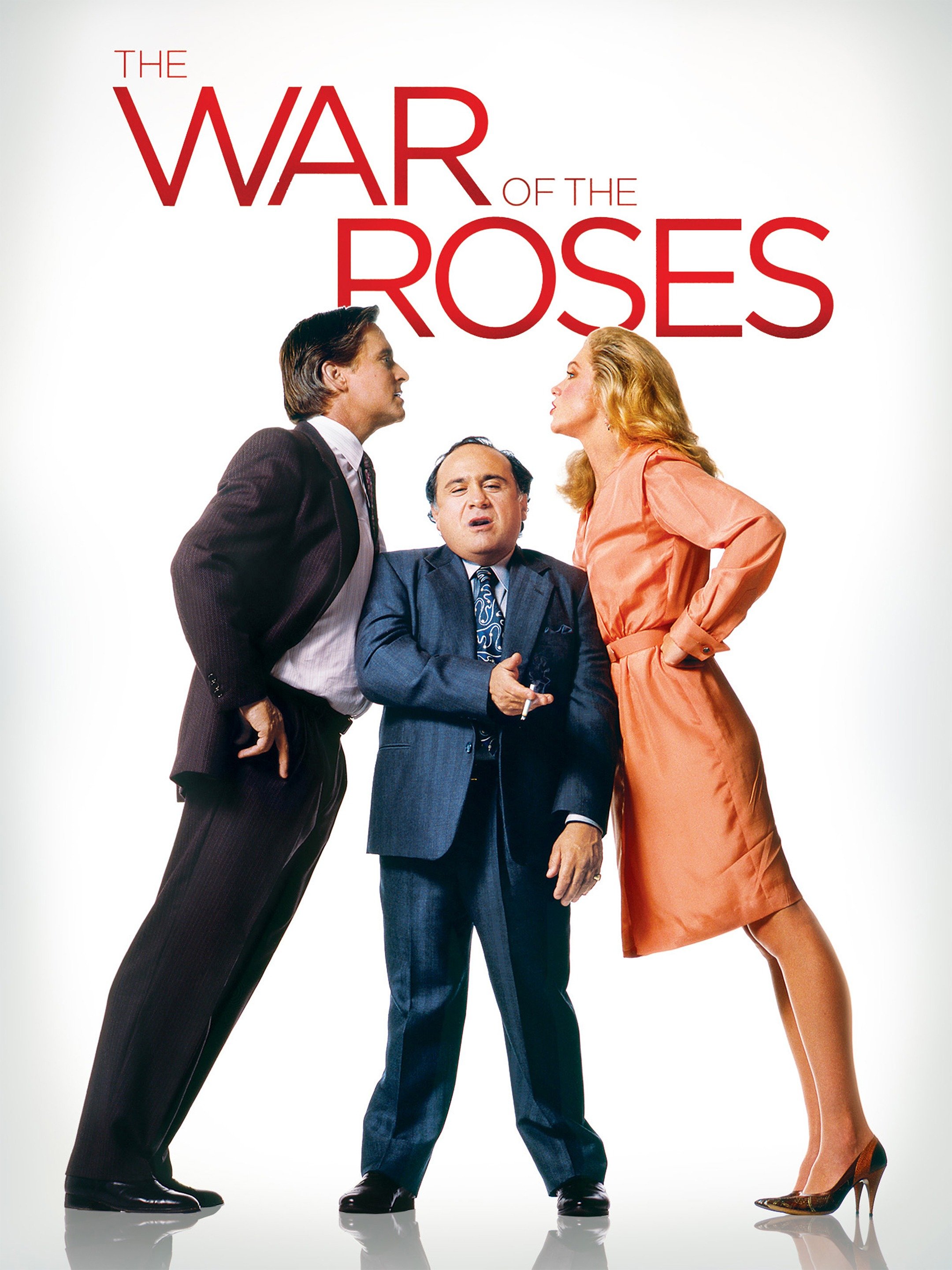
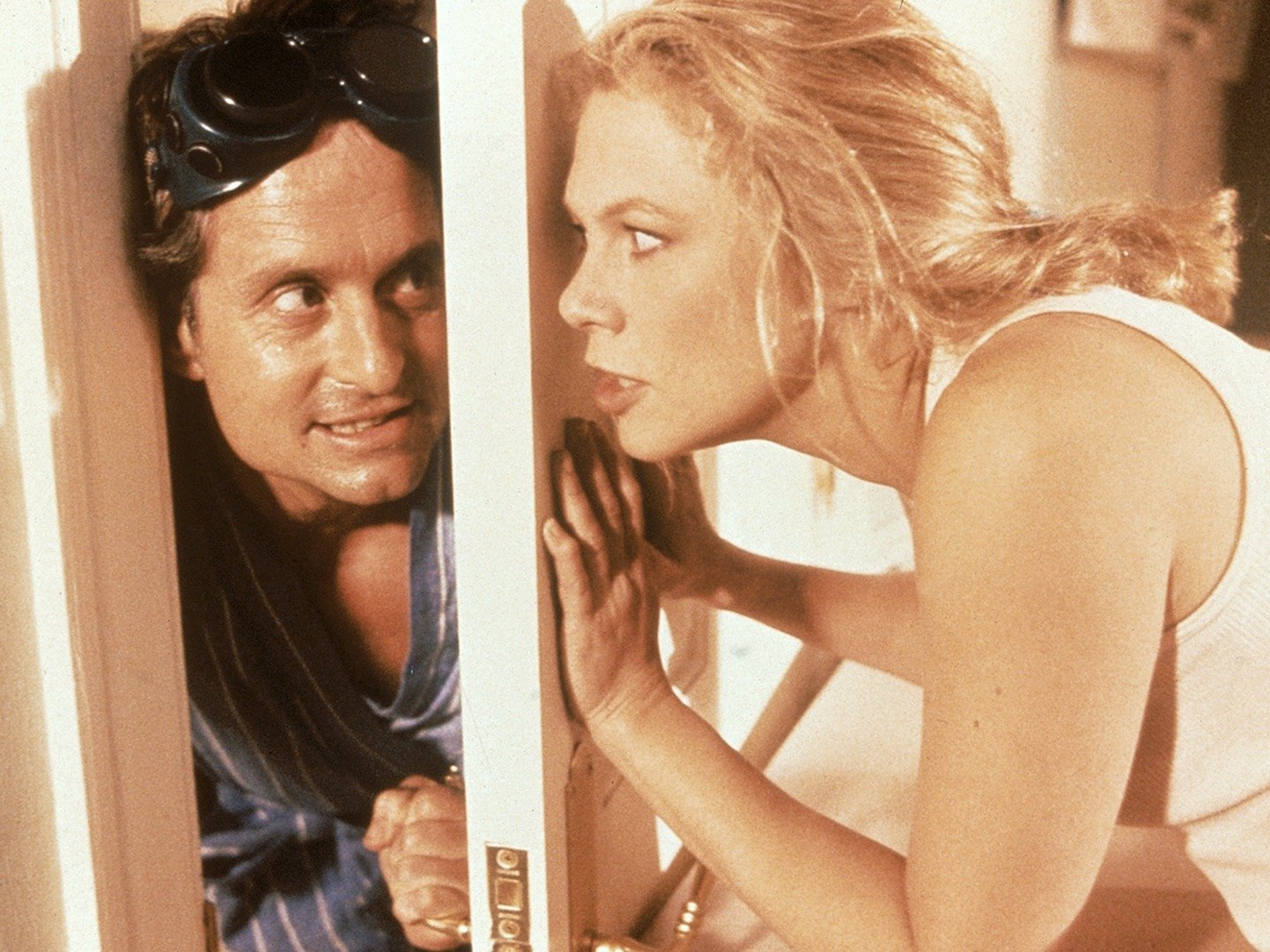
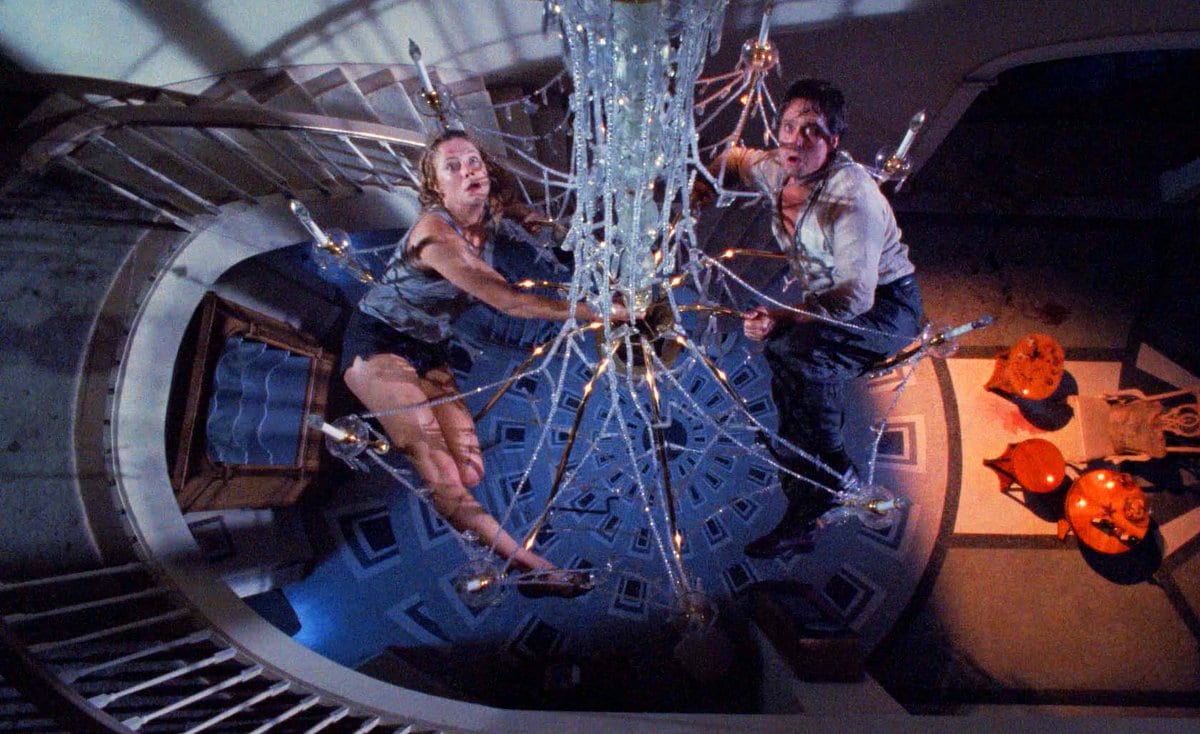
Lawyer Gavin d'Amato is in his office discussing a divorce case with a taciturn client. Noticing the man's determination to divorce his wife, Gavin decides to tell him the story of one of his clients, a personal friend of his.
Eighteen years earlier, Oliver Rose, a student at Harvard Law School, meets Barbara at an auction on Nantucket, where they bid on the same antique. Oliver chats Barbara up and they become friends. When Barbara misses her ferry home, the two end up spending the night together. Eventually, the two marry and have two children and settle in Washington, DC.
Over the years, the Roses grow richer, and Barbara finds an old mansion whose owner has recently died, and purchases it. However, cracks seem to be forming in the family, such as the children being overweight due to Barbara spoiling them with treats.
As Oliver becomes a successful partner in his law firm, Barbara, who was a doting and loving wife early in the marriage, appears to grow restless in her life with Oliver, and begins to dislike him immensely.
Oliver, for his part, cannot understand what he has done to earn Barbara's contempt, oblivious to his controlling, self-centered, indifferent, and generally dismissive behavior toward her.
When Oliver believes he is suffering a heart attack the day after an argument, Barbara does not show any concern for his well-being, and ultimately admits that she no longer loves him and wants a divorce. Oliver accepts, but tension arises between the two during a meeting with Barbara's lawyer when Barbara makes it clear that she wants the house and everything in it, even using Oliver's final love note to her (which he had written in the hospital) as leverage against him in their legal battle.
Oliver hires Gavin on a retainer as his legal counsel. Barbara initially throws Oliver out of the house, but he moves back in after discovering a legal loophole that allows him to stay while the outcome of the divorce is pending. As a result, Barbara immediately begins plotting to remove Oliver herself, even going as far as trying to seduce Gavin into siding with her instead.
In an effort to compromise, Oliver offers his wife a considerable sum of cash in exchange for the house, but Barbara still refuses to settle. Realizing that his client is in a no-win situation, Gavin advises Oliver to end the conflict by leaving Barbara with the house and starting a new life for himself. Oliver responds by firing Gavin and decides to take matters into his own hands. At this point, Oliver and Barbara begin spiting and humiliating each other in every way possible, even in front of friends and potential business clients. Both begin destroying the house furnishings; the stove, furniture, Staffordshire ornaments, and dishware. In addition, Oliver accidentally runs over Barbara's cat in the driveway. When Barbara finds out, she retaliates by trapping Oliver inside his private sauna, where he nearly succumbs to heatstroke and dehydration.
While the children are away at college, Oliver eventually calms down and attempts to make peace with Barbara over an elegant dinner, but finally reaches his breaking point when Barbara serves him a pâté which she implies was made from his dog (which turns out to be a bluff). Oliver physically attacks Barbara, who flees into the attic. Oliver boards up the house to prevent Barbara from escaping, while Barbara loosens the chandelier to drop on Oliver. When their German housekeeper Susan pays them an unexpected visit during the night, she senses something is terribly wrong and discreetly contacts Gavin for help. By the time Gavin arrives, Oliver and Barbara's quarrel has culminated in the two hanging dangerously from the insecure chandelier. During this time, Oliver admits to Barbara that despite their hardships, he always loved her, but Barbara does not respond. Before Gavin can come inside with a ladder, the chandelier's support cable fails, leaving only the electrical wiring to the fuse box supporting the couple and the chandelier. Despite Oliver's conviction that each wire can hold "at least two hundred pounds," the wire eventually fails as well, sending Oliver, Barbara, and the chandelier crashing violently to the floor.
In his final breaths, Oliver reaches out to touch Barbara's shoulder, but Barbara uses her last ounce of strength to push his hand away, firmly asserting her hatred for him even in death.
Finishing his story, Gavin presents his client with two options: either proceed with the divorce and face a horrific bloodbath in court, or go home to his wife to settle their differences properly. The client chooses the latter, and Gavin, satisfied, calls his wife to tell her he loves her and is on his way home. In both the novel and the film, the married couple's family name is Rose, and the title is an allusion to the battles between the warring Houses of York and Lancaster who were contending for the English throne during the late Middle Ages.
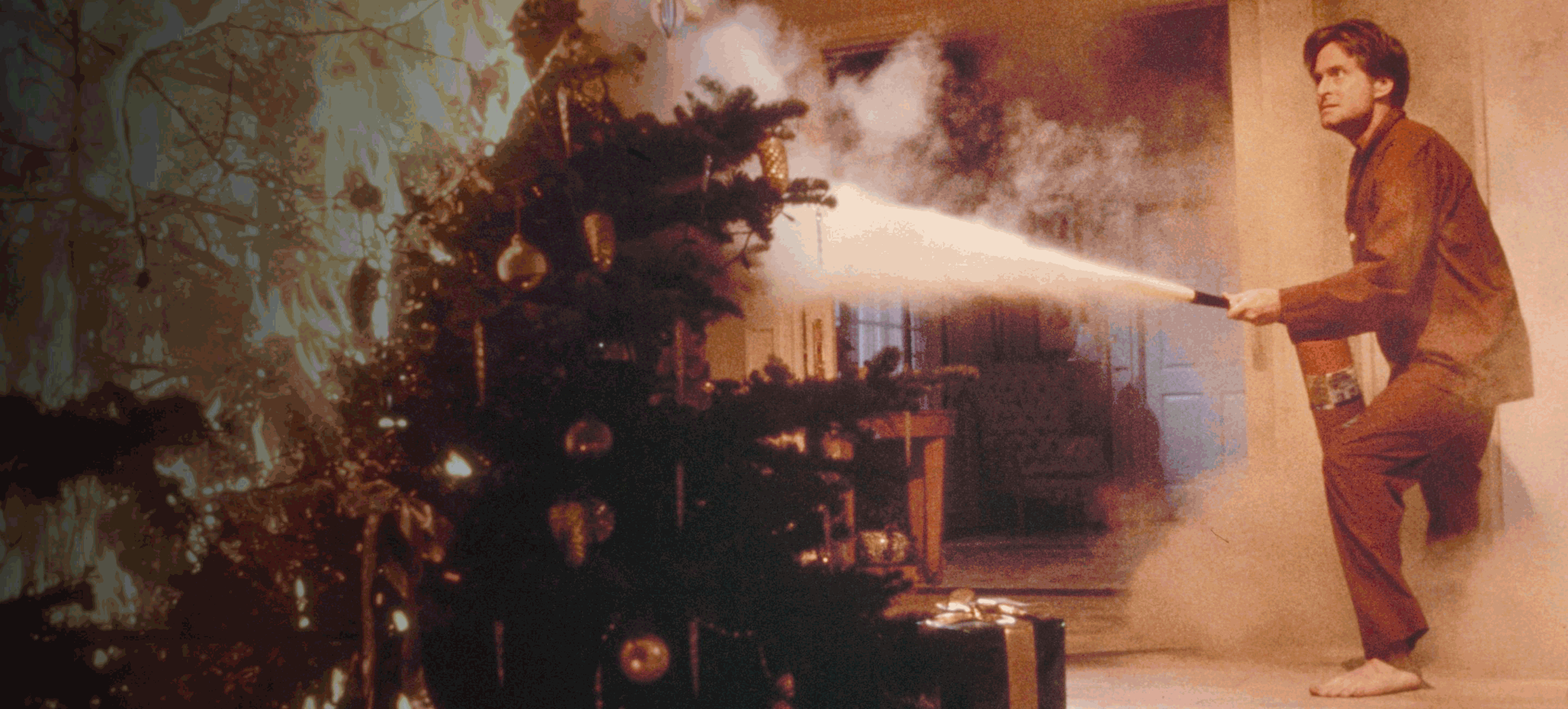
Wars of Roses, the Historical Civil Wars
The Wars of the Roses, known at the time and for more than a century after as the Civil Wars, were a series of civil wars fought over control of the English throne in the mid-to-late fifteenth century, fought between supporters of two rival cadet branches of the royal House of Plantagenet: Lancaster and York. The wars extinguished the male lines of the two dynasties, leading to the Tudor family inheriting the Lancastrian claim. Following the war, the Houses of Tudor and York were united, creating a new royal dynasty, thereby resolving the rival claims.
The conflict had its roots in the wake of the Hundred Years' War and its emergent socio-economic troubles, which weakened the prestige of the English monarchy, unfolding structural problems of bastard feudalism and the powerful duchies created by Edward III, and the mental infirmity and weak rule of Henry VI, which revived interest in the Yorkist claim to the throne by Richard of York. Historians disagree over which of these factors were the main catalyst for the wars.
The wars begin in 1455 when Richard of York captures Henry VI. He was then appointed Lord Protector by Parliament, leading to a short and uneasy period of peace. Later the same year, Richard Neville, said Warwick the Kingmaker, and the Yorkists, capture Henry VI again, allowing Richard to try claiming the throne, but he dies and leaves his son Edward IV to be crowned in June 1461. Edward then marries Elizabeth Woodville, widow of a Lancastrian knight in 1468 and proceeds to reverse Warwick's policy of seeking closer ties with France. In 1469, after another short period of peace, Warwick captures Edward IV and tries to put his own son, George of Clarence on the throne. The attempt fails and Warwick flees to France to join Margaret of Anjou, and lead the invasion of England by France. In the meantime, John Neville, second brother of Warwick, deserts Edward IV, forcing him to flee to Flanders. In 1470, Henry VI is restored as king. In 1471, Edward IV mounts a counter invasion, leading to the deaths of Henry VI and of Warwick The Kingmaker, and to a 12 year time of peace, until Edward’s death in 1483. After his death, his son gets to rule for 78 days before being deposed by his uncle: Richard III. This decision and the disappearing of both Edward VI’s sons provoqued a massive desertion of Yorkists to Lancastrian cause.
Right in the middle of the chaos comes back Henry of Tudor, son of Henry VI's half-brother, returned from exile with an army of English, French, and Breton troops. He kills Richard III in 1485 and is crowned kind as Henry VII. He married Elizabeth of York, the eldest daughter and only heir of Edward IV, thereby uniting the rival claims.
